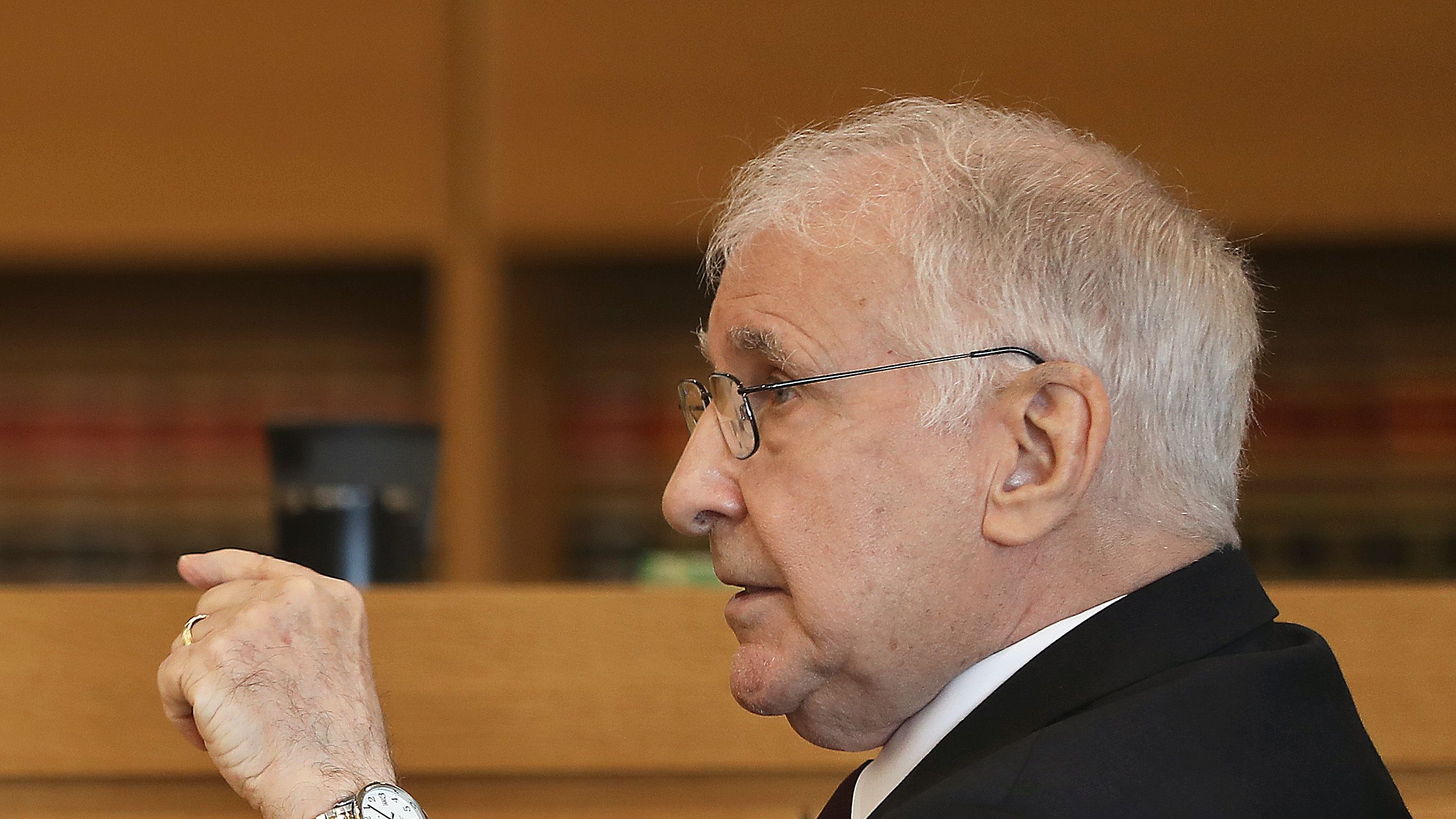Michelle Carter's Psychiatrist, Dr. Peter Breggin, Plays a Major Role In 'I Love You, Now Die'
His testimony was described as "bizarre."

Watching Erin Lee Carr's HBO documentary I Love You, Now Die, you may already have been familiar with the names Michelle Carter and Conrad Roy III—but you probably weren't expecting to recognize the psychiatrist speaking in Carter's defense, Dr. Peter Breggin. If Breggin looked awfully familiar, there's a reason for that: A well-known psychiatrist passionately opposed to psychiatric medication, Breggan has been described by the New York Times as America's most famous ADHD critic. He's written and spoken at length about his anti-psychiatric medication stance, and appeared on shows from The Oprah Winfrey Show to Frontline.
CONTENT WARNING: The below story contains detailed descriptions of a case involving death by suicide. This content may be triggering for some readers.
Breggin was called as a defense witness at Carter's trial, and sought to argue that the psychiatric drugs Carter was taking around the time of Roy's death had a dangerous effect on her. Breggin's testimony was described by local outlet MassLive as "bizarre," with Breggin frequently batting heads with both the judge and and Katie Rayburn, the prosecutor in the high-profile case.
Breggin has a long history of denying that psychotropic drugs can be effective or helpful. To the contrary, he argues that they are typically more harmful than useful to the patient, and that the pharmacological community is engaged in a cover-up of sorts. He has famously referred to ADHD as "DADD," claiming: "In my clinical experience, most so-called ADHD children are not receiving sufficient attention from their fathers."
Which brings us to his role in Carter's case. In 2014, Carter had begun taking Celexa, an antidepressant, as part of treatment for an eating disorder. The side effects of the drug left Carter "involuntarily intoxicated," Breggin claimed, and sometimes in a "hypomanic" and "delusional" state. In line with her lifelong desire to be a "helper," Breggin told the court, Carter came to believe that to help Carter would be to help him die by suicide. "She's clearly out of her mind," Breggin speculated. "And so is he."
"Both were victims—of the psychiatric drugs," Breggin claims in I Love You, Now Die of Carter and Roy.
Yet, in part two of the documentary, another psychiatrist disagrees with Breggin's premise. Says Dr. Anne Glowinski: "Involuntarily intoxication is a diagnosis that I never use, and that most of the colleagues that know I don't use, but that is used in forensic psychiatry—so, without any consensus by our profession that it's even real," she explains.
Get exclusive access to fashion and beauty trends, hot-off-the-press celebrity news, and more.
Later, Breggin would find himself in hot water for his behavior during Carter's trial—namely, that he took information from the confidential medical records of Conrad Roy III and posted them to his blog, "The Breggin Blog," the tagline of which is "What your doctor may not know." Added the Boston Herald: "At the end of the blog post, which was attached as an exhibit to Bristol prosecutor Katie Rayburn’s motion, there is language regarding tax-deductible donations from readers."
The trial, and the ensuing HBO documentary, brought more attention to the controversial psychiatrist. BuzzFeed reported on a 1995 judge who called Breggin "totally without credibility," and a 1997 judge who described Breggin as a "fraud."
Breggin's efforts to defend Carter ultimately proved unsuccessful. In August of 2017, Michelle Carter was convicted by Judge Lawrence Moniz of involuntary manslaughter. She began serving her sentence in February of 2019.
Wrote Breggin on his blog: "I was Michelle’s psychiatric expert. Following the judge’s decision to convict Michelle of manslaughter with words, he sentenced her today. And today, with the judge’s sentencing, I begin my series of reports on Mad in America about this tragic story...The outcome of Michelle’s trial perpetuates the cover up of the dangers of psychiatric drugs and psychiatric diagnoses and treatment."
Breggin, for his part, has maintained a robust archive about Michelle Carter that he's made available to the public.
If you’re thinking about suicide, are worried about a friend or loved one, or would like emotional support, the Lifeline network is available 24/7 across the United States at 1-800-273-8255.
Dedicated to women of power, purpose, and style, Marie Claire is committed to celebrating the richness and scope of women's lives. Reaching millions of women every month, Marie Claire is an internationally recognized destination for celebrity news, fashion trends, beauty recommendations, and renowned investigative packages.

